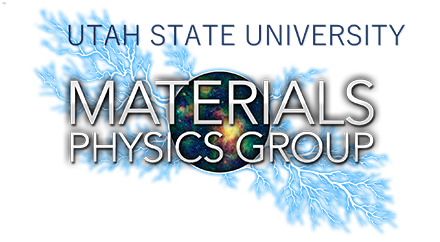Document Type
Article
Journal/Book Title/Conference
The 17th Spacecraft Charging Technology Conference, Palais des Papes, Avignon, France, June 17-21, 2024
Publication Date
6-2024
First Page
1
Last Page
5
Abstract
Ionizing radiation can induce conductivity in polymers via inelastic scattering which imparts energy to electrons in the valence band and trapped states, exciting them into the conduction band without depositing charge into the material. This radiation-induced conductivity (RIC) can impact space charge dissipation within highly insulating materials used in spacecraft in harsh space plasma environments. Previous USU research analyzed only the equilibrium portions of an extensive RIC database for polymeric materials, including Kapton HNTM. This confirmed that equilibrium RIC follows a standard theoretical model that is temperature and dose-dependent. The current study provides a new analysis of RIC's time-dependent behavior in Kapton HNTM from this database. With the onset of radiation, the material response is characterized by an exponential increase in conductivity, while a hyperbolic inverse time-dependent decay characterizes the decay of delayed RIC. Models with two time constants representing fast and slow release of trapped charges produce the best fits. These models provide information about the material's dose, temperature, and time dependencies in RIC, and help infer the relative trap distribution.
Recommended Citation
Heggenes, Tyler; Whiteley, Jenny R.; Gillespie, Jodie Corbridge; Boman, Joshua; and Dennison, JR, "Time-Dependent Behavior of Radiation Induced Conductivity in Polymers" (2024). The 17th Spacecraft Charging Technology Conference, Palais des Papes, Avignon, France, June 17-21, 2024. Conference Proceedings. Paper 57.
https://digitalcommons.usu.edu/mp_conf/57


